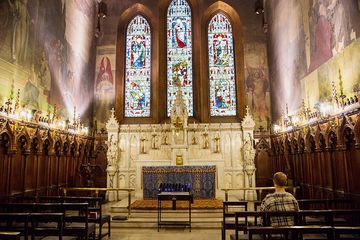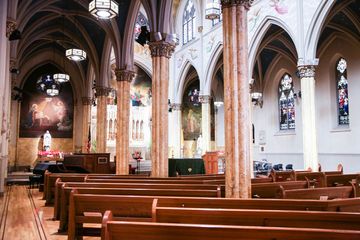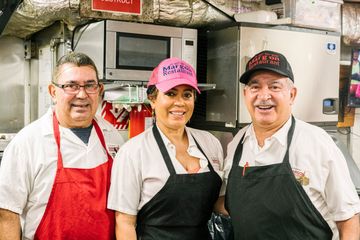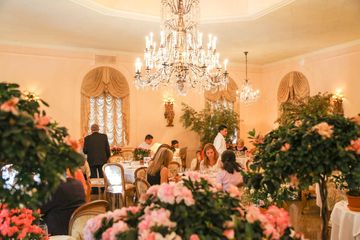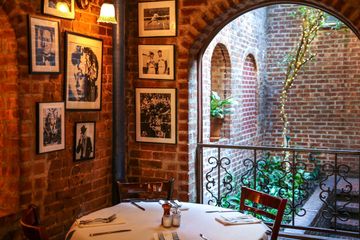Not only does Barbetta profess to be the oldest restaurant on Restaurant Row, it is also one of the oldest Italian restaurants in New York. Opening its doors in 1906, in four adjoining townhouses built in the late 1800s by the Astor family, Sebastiano Maioglio began his long restaurant career. The emphasis has always been on Italian dishes and wine from the Piemontese region, where he was from. Sebastiano’s daughter, Laura, took over in 1962, and immediately began to remodel the restaurant in the style of 18th C. E. Piemonte. With her passion for collecting art, great sense of personal style, frequent visits in Piemonte, and an art history degree from Bryn Mawr College, it is no wonder that Barbetta’s exquisite interior has become as highly regarded as its food. The dining room demonstrates its old-world opulence, with ornate chandeliers, chairs, and tables meant to evoke a palazzo of the eighteenth century, during Piemonte’s cultural height. The baroque interior serves as more than just a reference to its heritage; it is a part of it. The great chandelier in the main dining room initially came from a palazzo in Torino, where it belonged to the royal family. Laura negotiated to obtain this 18th C. E. chandelier for two years. Other highlights of Barbetta’s extensive collection include the harpsichord in the foyer - crafted in 1631, as well as hanging wall prints from Piemonte - part of a distinguished set crafted in 1682. Items that could not be authentic, such as the numerous chairs and barstools, are reproductions of museum pieces that were specifically chosen by Laura to be reproduced in Italy. The garden, available for dining in the summer, holds trees dating back over a century ago, and, in line with the interior, holds the atmosphere of refined European aristocracy. Barbetta, while serving as a cultural landmark, remains focused on the excellence of its ever-changing list of dishes while serving classics such as risotto and polenta since its founding. Every dish on its menu since 1962 has been approved by Laura, and celebrating its long history and heritage, each menu item is marked with the year it began to be served, while dishes from Piemonte are in red print. Although esteemed for its dishes, Barbetta is also famed for its 72-page wine list, which has won numerous awards. Barbetta has also transformed the Italian dining scene through its numerous examples of “being the first”- from its conception to the present day. A few highlights include its beginning as the first Piemontese restaurant in New York, its status as New York’s first elegant Italian restaurant after its 1962 transformation, as well as its usage of numerous ingredients that at the time, were not commercially available in America and which had to be specifically imported by them from Italy. A particular example of one of these imported ingredients is white truffles. Years ago, Barbetta’s own truffle-hunting dogs became so well known that they were asked to perform a demonstration at Carnegie Hall in 1992. Barbetta is also unique in its emphasis on low sugar and low salt dishes - Laura even decided that Barbetta would smoke its own salmon to ensure it would not be too salty. Laura described Barbetta as “an institution, much more than a restaurant, ” due to the extensive culture that has been built around it and that it has created. The description as “much more than a restaurant” struck us as particularly apt, due to Barbetta’s long list of famous regulars - from The Rolling Stones to Jacklyn Kennedy - its exceptionally elegant and unusually spacious interior, variety of phenomenal food, and historical significance.
